Cecil Rhodes: Oxford scholarship 'needs reform'
- Published
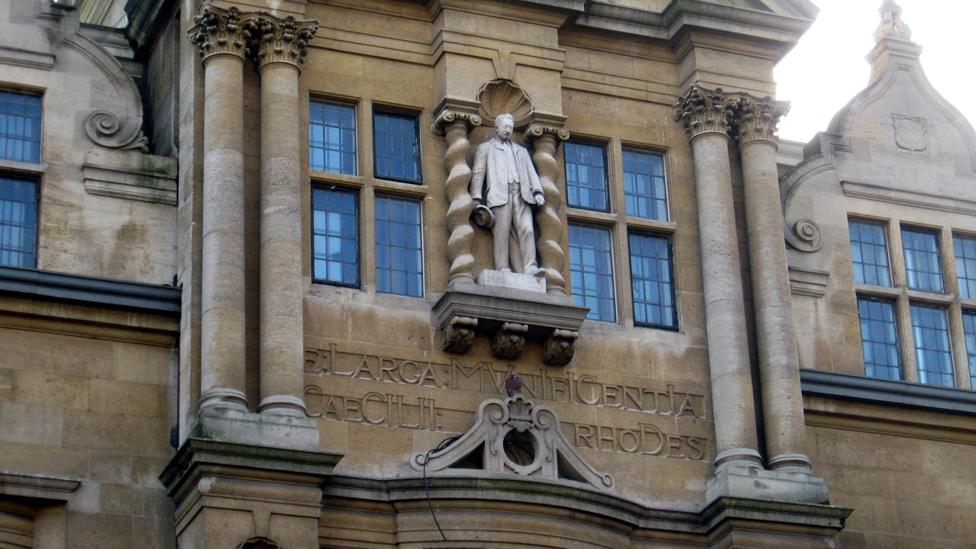
Rhodes's statue stands at Oriel College, Oxford
Campaigners demanding the removal of a Cecil Rhodes statue have called for a scholarship created in his name to be reformed.
The Rhodes scholarship has been awarded to more than 8,000 overseas students to study at Oxford University, since its creation in 1902.
Campaigners have demanded it be renamed and used to recruit more students from Africa and former colonies.
The college has maintained its refusal to remove the figure from its building.
Members of the Rhodes Must Fall movement - which staged a peaceful protest against the statue at Oriel College in High Street on Tuesday - said the scholarship needed "to become a tool for reparation".
The said the grant, with former recipients including US president Bill Clinton, was "based on the oppression of southern African people and African people".
"The Rhodes scholarship needs to be reformed," they said.
The group also hit back at comments by university chancellor Lord Patten, who accused campaigners who had benefitted from the bursary of displaying "a bit of hypocrisy" .
"It is not hypocrisy to take funds from a scholarship which was founded on the money that your ancestors blood, sweat and tears contributed towards," the group said.
"Especially in the case of southern African Rhodes scholars."
The Rhodes Trust, the body that grants the scholarships established by Rhodes' will in 1902, has been asked for comment.
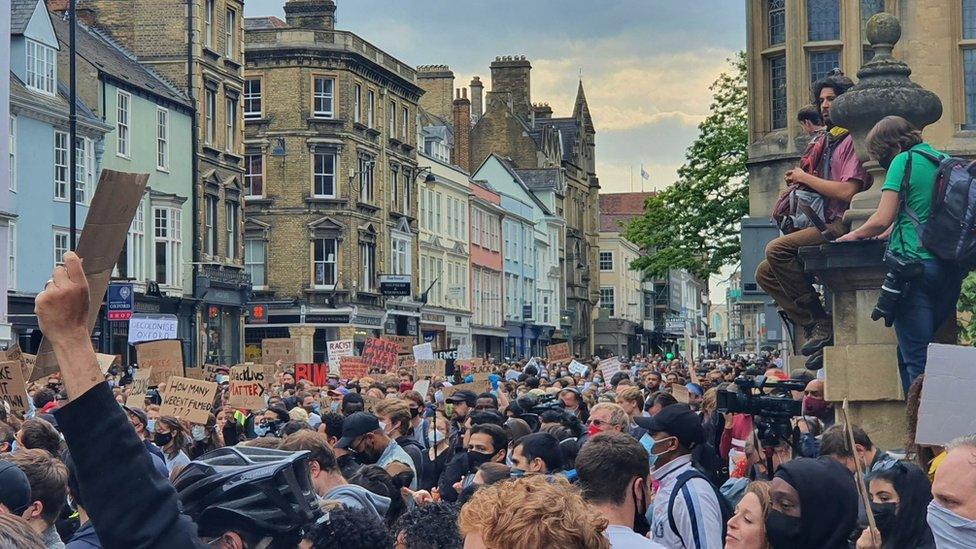
The protest observed an eight-minute 46-second silence in memory of George Floyd
Campaigners have said Rhodes, a 19th Century businessman, member of Oriel College and politician in southern Africa, represented white supremacy and is steeped in colonialism and racism.
"Even if the statue comes down" more needed to be done "in the curriculum...and in representation", they said.
Calls have also been made to remove a statue of Christopher Codrington, who's wealth derived from sugar plantations worked by slaves in Antigua and Barbados, in a library named after him in Oxford's All Souls College.
Oriel College, which owns the Rhodes statue, said there was "no change" to its position on the figure and said it "abhors racism and discrimination in all its forms".
The college decided not to remove the statue following protests in 2016 and has denied claims it was due to donors threatening to withdraw funding.
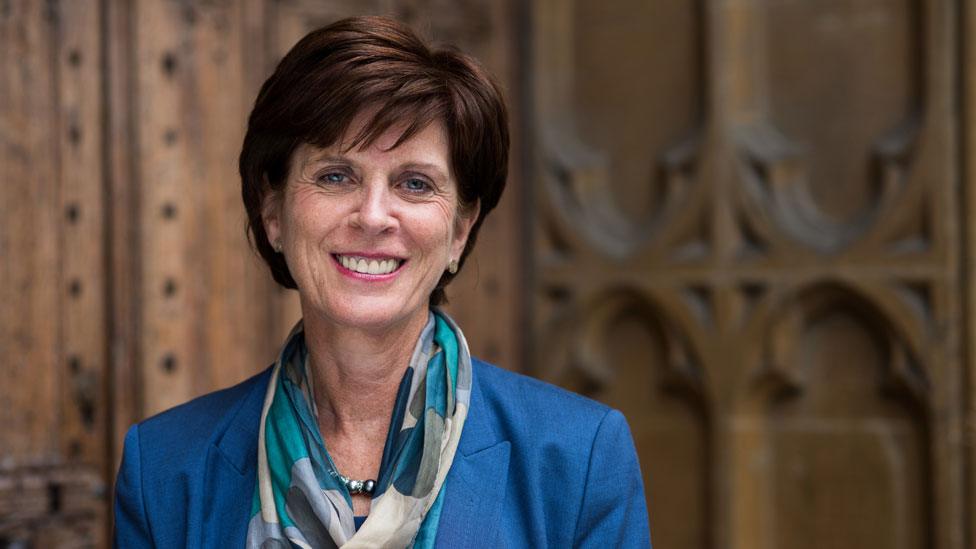
Louise Richardson says that the views of the past need to be examined in the context of the time
Oxford University's vice chancellor, Professor Louise Richardson, said her own view was that "hiding our history is not the route to enlightenment".
She said she did not want to give a "binary" view on whether to remove the Rhodes statue.
Baroness Valarie Amos, the incoming master of University College in Oxford, and the first black head of any Oxford college,, external said we "shouldn't airbrush history" but questioned why the Rhodes statue was needed "to have a conversation about history".
She said: "I would take it down. He founded a company that made money through slave labour in the mines, and you're telling me that we have to put up a statue of this person, glorify their memory, to have a conversation about our history?"
- Published11 June 2020
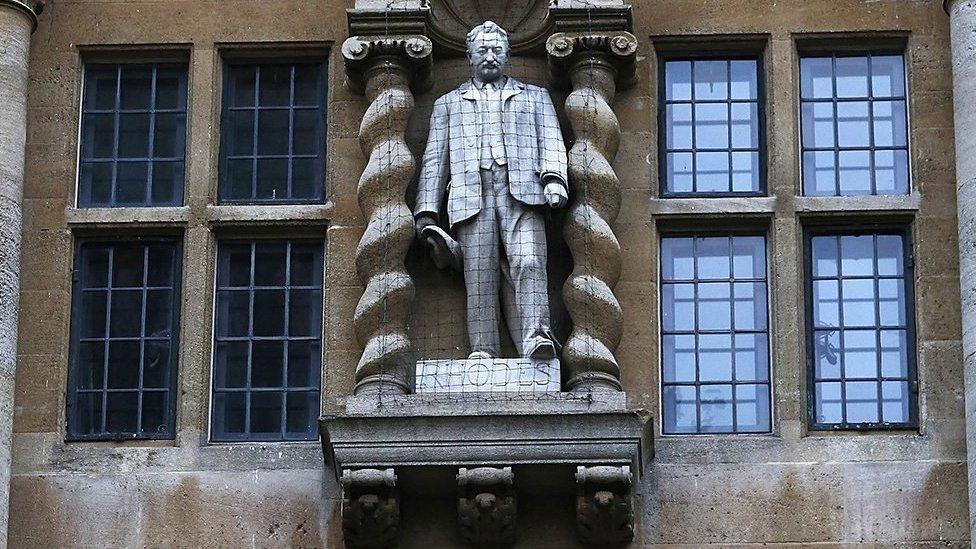
- Published10 June 2020
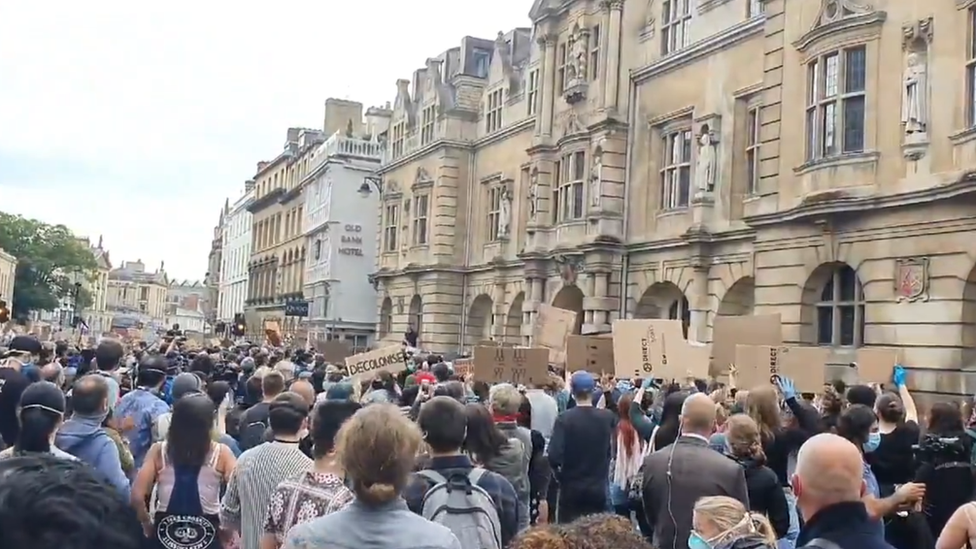
- Published1 April 2015
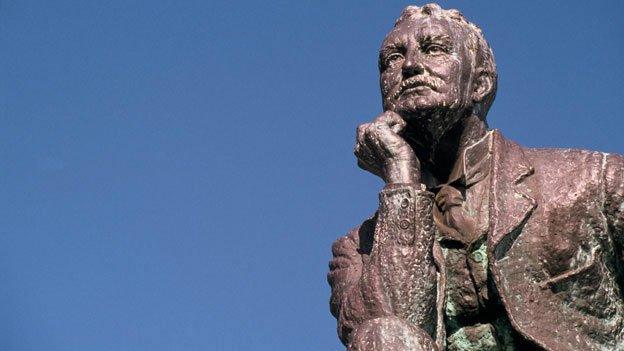
- Published29 January 2016
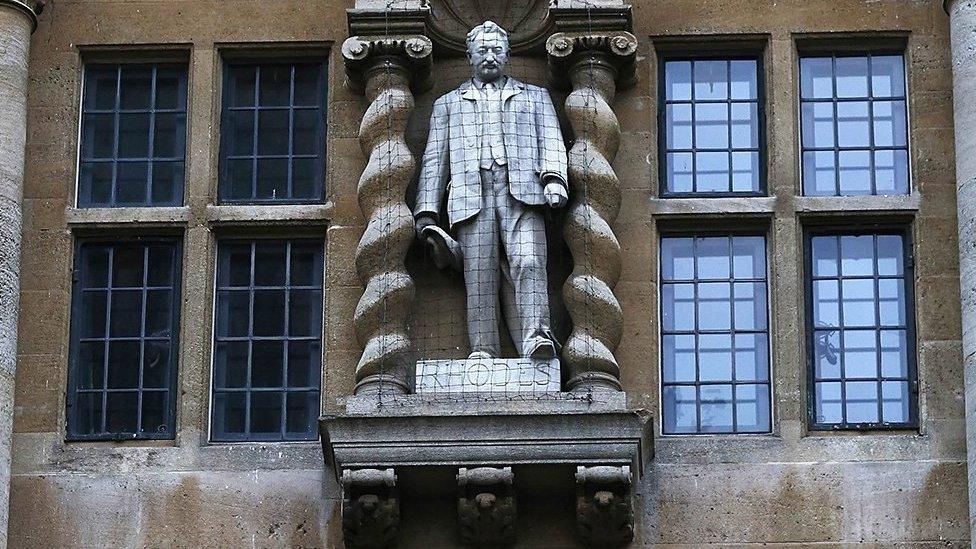
- Published8 June 2020
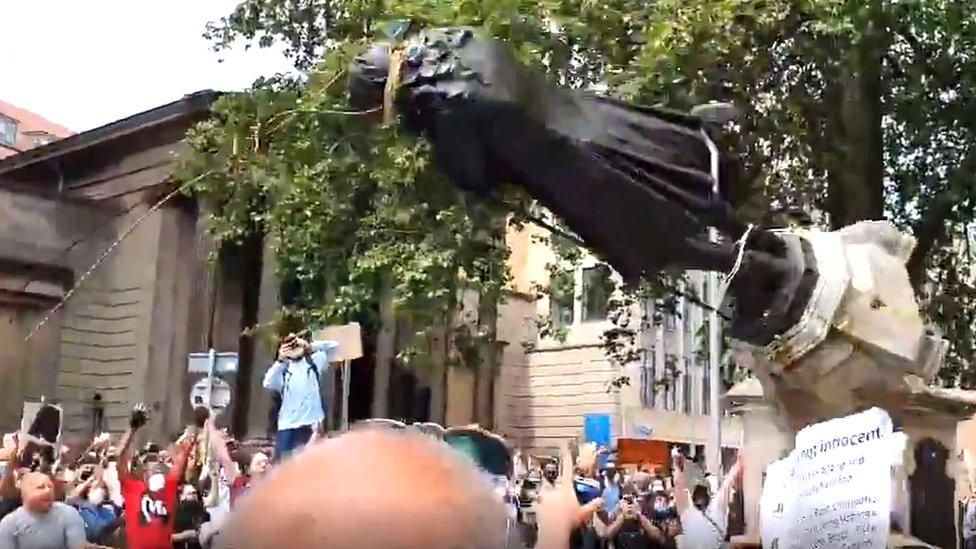
- Published8 June 2020

- Published9 June 2020
